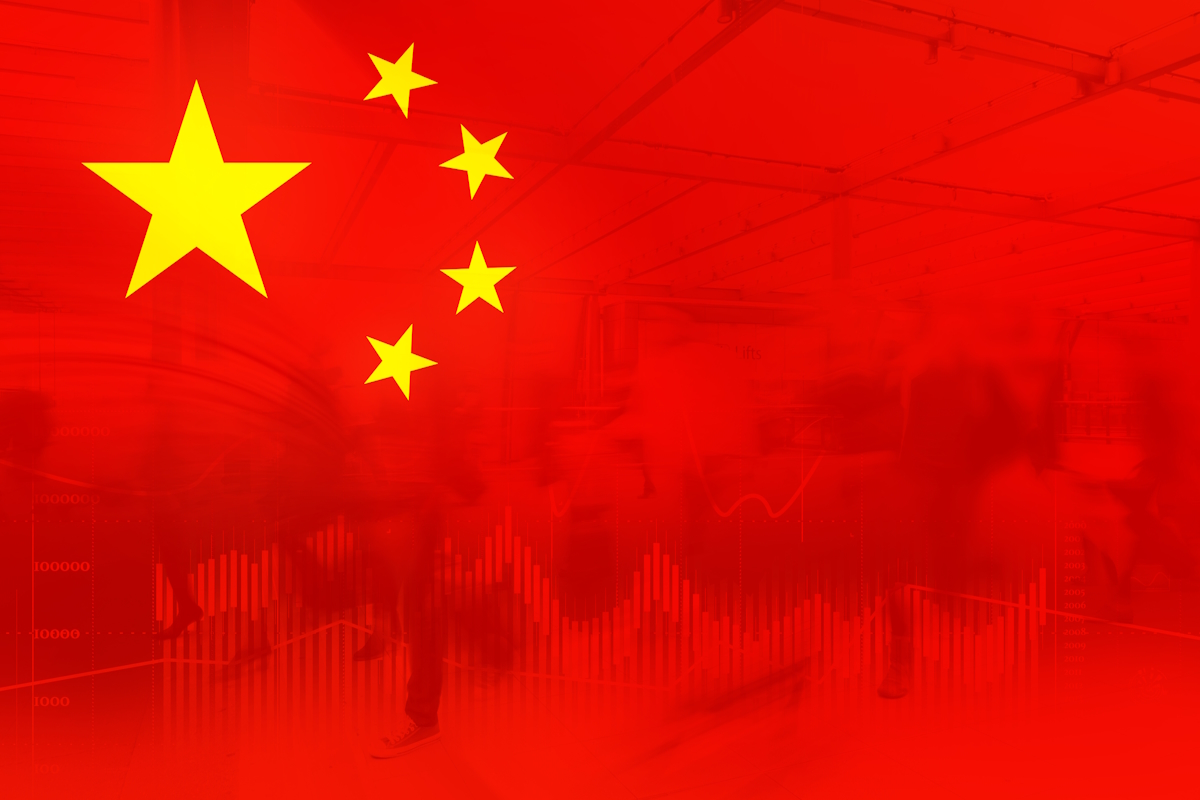China is under pressure to support its fragile economy. Investor confidence in the market is already low. We spoke to Diana Choyleva, Senior Fellow on Chinese Economy at the Asia Society Policy Institute’s Center for China Analysis and Chief Economist at Enodo Economics about the challenges facing the Chinese economy and how the government can counter them.
AsiaFundManagers.com: Nine months ago, China’s economy was poised for a strong recovery after abandoning zero-Covid measures. However, this expected rebound has lost momentum. Which factors have contributed to this outcome?
Diana Choyleva: China’s large debt burden and meagre return on capital, significant global headwinds and low business and consumer confidence have all combined to sap growth. The restrictions and distortions of the zero-Covid policy had hit the economy hard in 2022, so Beijing fell back on its old playbook: Stimulate with a credit-driven, state-directed investment boost now, worry later.
At the start of 2023 we argued that growth is likely to come close to pre-pandemic levels in the short term, but the old playbook was not going to place the economy on a sustainable development path. Indeed, quarterly growth has averaged 1.4% in Q1-Q3 this year which is on par with the average quarterly growth rate of 1.5% in 2018-19.
But the economy is losing momentum because it needs genuine strong demand from either consumer spending or exports and neither is forthcoming.
AsiaFundManagers.com: In a research paper authored by you, you noted that Xi Jinping has turned to national security, ideology, and top-down directives to realise his “China Dream” of national rejuvenation. How is this change affecting China’s economic landscape?
Diana Choyleva: China is facing unprecedented challenges to its development model. Some issues, such as corruption and overreliance on property investment for growth, Xi Jinping inherited. But others, such as sapping the confidence of both foreign investors and China’s well-off urban middle class, are of Xi’s own making.
Subjugating the economy to an all-encompassing concept of national security and striving to achieve industrial self-reliance has raised red flags for foreign venture capitalists and portfolio investors to the extent that some have concluded that China has become ‘uninvestable’.
Focusing on ideology and the centralisation of power have altered the incentives driving the behaviour of local government officials, private entrepreneurs, well-off urbanites, and young Chinese, causing them to keep their heads down and “lie flat”.
AsiaFundManagers.com: Xi Jinping incorporated the concept of “Common Prosperity” into his party’s official doctrine in August 2021. How this has affected the common people in China, and what challenges it might pose?
Diana Choyleva: Xi looks to ideology, not pragmatism, to deliver what he genuinely believes is necessary to maintain China’s social cohesion: a nation that is not only prosperous but also egalitarian. Fighting income and wealth inequality is a noble task, but Beijing’s approach has undermined an even more important driver of development over the past 40 years: private entrepreneurial spirit.
Ultimately, why would business owners want to succeed when spending how one wants is frowned upon and hard-earned gains could be taken away to serve the needs of the Party?
AsiaFundManagers.com: Xi Jinping has emphasised the idea that “houses are for living in, not for speculation.” Did the Party’s intervention lead to the implosion of China’s real estate market? How has Chinese households’ view of property ownership changed since then?
Diana Choyleva: China’s outsized property market would have collapsed under its own weight. Beijing intervened in what they thought to be a pre-emptive manner, aiming to readjust the structure of the economy and spread out the workout of excessive property debt over time.
If China had to deal with just the property debt challenge, it would have probably been able to ride it out over time. But it coincided with the Covid hit and the US deepening its stinging tech restrictions as part of its strategy to contain China.
Most importantly though, the idea that “houses are for living in, not for speculation” dealt a severe blow to the wealth and confidence of middle-class Chinese families for whom property has been the main asset. They had relied almost exclusively on capital gains from their investment properties to grow their wealth. But those are no longer to be.
Starved of other assets that are trusted, have capital growth potential or are high-yielding Chinese households are forced to save more to grow their wealth. But while for the individual this might make sense, for the economy as a whole there comes a point where too much saving is bad. And China is definitely at that point now.
AsiaFundManagers.com: China’s youth seem to be adopting a more minimalist lifestyle. How does this trend affect China’s economic landscape, particularly as the Chinese government pushes for a transition to a consumption-driven economy?
Diana Choyleva: Xi Jinping’s watchword is frugality and this is at odds with the aspirations of China’s educated youth and the pressure put on them by their families. Mostly only children, they are burdened by their parents’ expectations to excel academically and secure well-paid, high-status employment. In reality, their working lives are disappointing and frustrating, involving low pay and long hours of often unproductive activity — the so-called 9-9-6 model of working from 9 a.m. to 9 p.m., 6 days a week. Moreover, from the outset of his rule, Xi has singled out lavish lifestyles and ostentatious spending as targets for criticism.
This has led to the rejection of aspiration and the embrace of a minimalist lifestyle supported by casual labour. It is hard to estimate how widespread this countercultural movement has become; in practice, it may not be that significant. But its emergence has caused concern for a Party-state seeking to project a message of positive energy, productivity, and relentless optimism and is not supportive of a transition to a consumer-driven economy.
AsiaFundManagers.com: College graduates in China are dealing with high levels of unemployment. What implications might this hold for the country’s economic outlook?
Diana Choyleva: The most pressing challenge facing China’s urban youth is the growing and probably intractable level of unemployment among college graduates due to the weak economy and the Party-state’s curbs on firms in the digital service, real estate and private tutoring space that previously employed many young graduates.
Paradoxically, there is no overall shortage of jobs: China’s manufacturing sector has a high level of vacancies, estimated to reach 30 million by 2025. But Chinese intellectuals have traditionally seen manual labour as beneath them, and this view persists among young college grads.
The number of college graduates soared to 11.6 million in 2023, a 40% increase from 2019, and it is predicted to reach 20 million by 2025. The Chinese Party-state is keenly aware of the destabilizing potential of China’s educated youth and finding a solution to this issue is a top priority.
AsiaFundManagers.com: Looking ahead, what do you think are the biggest challenges and opportunities for China’s economy and financial markets under Xi Jinping’s leadership?
Diana Choyleva: China’s leadership is facing the most difficult test to its country’s development model since I’ve started analysing China in 2000. Maybe even during the whole 40-year period of opening up and reform. The Party needs to deal with mounting bad debts, depressed “animal spirits”, dire demographics and the social and strategic challenges of the end of its fast growth era. It can no longer export its way out trouble as the West is decoupling from China and China’s labour-cost advantage has been eroded.
The opportunities lie in China’s ability to take advantage of the 21st century revolution centered on data and the digital economy. In the eyes of Beijing, data will be the critical factor of production in the future and will enable it to inject fresh vim into China’s development without relinquishing the control that the Chinese Communist Party craves. In a world of machine learning, the country with the richest databank will be the most powerful economy, Beijing believes.
AsiaFundManagers.com: Thank you very much for the interview.
Diana Choyleva

Diana Choyleva is Senior Fellow on Chinese Economy at the Asia Society Policy Institute’s Center for China Analysis and a leading expert on China’s economy and politics. She is Chief Economist at Enodo Economics, a macroeconomic, political, and geopolitical forecasting company in London, which focuses on China and its global impact. Diana has been covering China for over two decades and has written three books.


 Australia
Australia China
China India
India Indonesia
Indonesia Japan
Japan Malaysia
Malaysia Philippines
Philippines Singapore
Singapore South Korea
South Korea Taiwan
Taiwan Thailand
Thailand Vietnam
Vietnam







